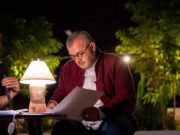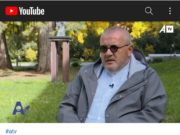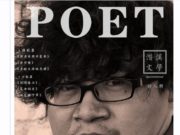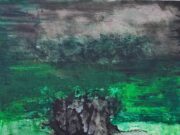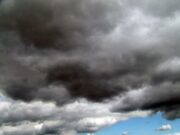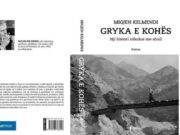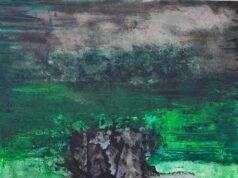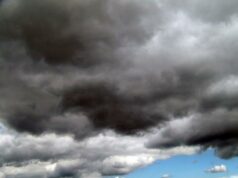Jonas Zdanys, a bilingual poet and translator, is the author of fifty-four books: collections of his own poetry, written in English or in Lithuanian; volumes of his translations into English of Lithuanian poetry and fiction; and edited anthologies. He has received a number of prizes, book awards, writing and travel grants, and public recognitions for his own poetry and for his translations. They include Lithuania’s Jotvingiai Prize and the National Prize for Literary Translation given by the Lithuanian Ministry of Culture; and grants from the Connecticut Commission on the Arts, the National Endowment for the Arts, the International Research and Exchanges Board/National Endowment for the Humanities, and the Lithuanian Ministry of Culture. He has taught at the State University of New York and at Yale University, where he held a number of administrative positions, and served for more than a decade as the state of Connecticut’s Chief Academic Officer. He is currently Poet in Residence and Professor Emeritus of English at Sacred Heart University.
from Three White Horses
The streetlamp casts black shadows
across the curtains that float
to the middle of the floor
and darken the room.
The earth turns toward dawn,
the wind out of the east.
The grief of the unanswerable
question spreads over the walls
like a hard inscription
and the snow drifts down.
Cold owls gather white ice
as the hour passes, time
the mute timber of a sallow light.
The ghost of her blind father
is home again: the white shadow
rising above the black street
after a long wandering,
the last grain of sand in his eye.
The weight of things falls to its end:
the world is a hollow sphere,
the last circle, filled with illusions
of smoke where spiders in the
corners of lost rooms mumble
and weave and the deep of night
cannot shake itself awake.
*
You dream of a long hall, dimly lit,
where breaths flutter against dark walls,
a white moth drumming on a hanging bulb;
of a quiet old room with green carpets,
a barefoot woman anxious with love
stretched on a hard brown chair;
of an empty bed at the end of winter,
a black skirt laced with fine stitches
draped loosely on a faded rail;
of arms and thighs wrapped together
in secret, faces pressing tense on a rug’s
frayed edge, reflected in the pane;
of yourself, dry as salt in flutters of air,
floating through the ends of a bitter
earth and watching, watching.
These shadows mock the thin
disorder of the night, the paradox
of the zero and the one.
*
Cold numbs my fingers as I scratch
the frozen light from the edges
of the window, my breath
congealing on the sibilant glass.
The church tower in the shadows
that lap the street is dark as the day
of judgment, dark as the day when
ghosts whose names I tap on the glass
will claim the borders of the world.
We pretend there’s time to change sides,
carve new images in the ice
and turn the index over in a flat land
where tomorrow, poised on the
threshold, looks in and out,
a narrow orbit swallowing time whole.
Stillness moves into stillness,
repeats itself with no consolation.
The streets are empty and the hour dead.
I am transparent in the window,
float measureless on a mortal scale,
my face and its reflection
a random synthesis that struggles
in history and granite, not sure
which fragile patterns to choose
as the sky looks coldly down.
I hide under the covered table, the
ranks of black boxes precisely aligned.
The room recedes neglected down
the stairs and I make myself small
in a stirring of musty air.
A blade of light pierces my heel.
*
The moment that follows each moment
is a snare of no use to anyone,
the nothing that comes after each nothing.
I dreamed last night that I would dream
last night that night fell cold through the closed
window into my room and the wilderness out
beyond the river at the edge of the square made
its way back to another bend of the river outside
the closed window of my room near the square.
These images remain and grow upside
down like dead seeds sprouting on the ledge
of the pantry window waiting for the world
to turn upside down again, a mirror likeness
of itself on a horizon that cannot open, and
blossom into horses’ hooves grounded in mid-air.
Tomorrow, in my dream of tomorrow
I will send a letter to myself, the end
not written, no signature composed.
I hope to be surprised to see what it comes to
in the end, whose name will close the closing line.
Or I’ll contemplate the movements of stones,
the contradictions that tie nature and art together
into simpler compulsions, as I shift in my bed
contemplating the slow movements
and contradictions of stones in my bed.
The season of decay is kept from decay.
In the bright night the dark is too deep.
We can argue either side from either side.
*
The only light is a small cluster
of stars and a thin crescent
of the moon that hangs across
an old red roof thick with the
gestures and truths of night.
The strange thing rings hollow
in the annulments of this season,
the black edge of an ancient reward
tacked empty in the gray glide.
The world unrolls like a ball
of wet string through cold fingers,
the path of death in brief stars,
and the last blue light of the past unveils
itself in the loose boards of the floor.
Seven black crows tangle the ice
of the river, the mysteries of their
sidelong dance with the shadows
in the snow exhausting the void.


